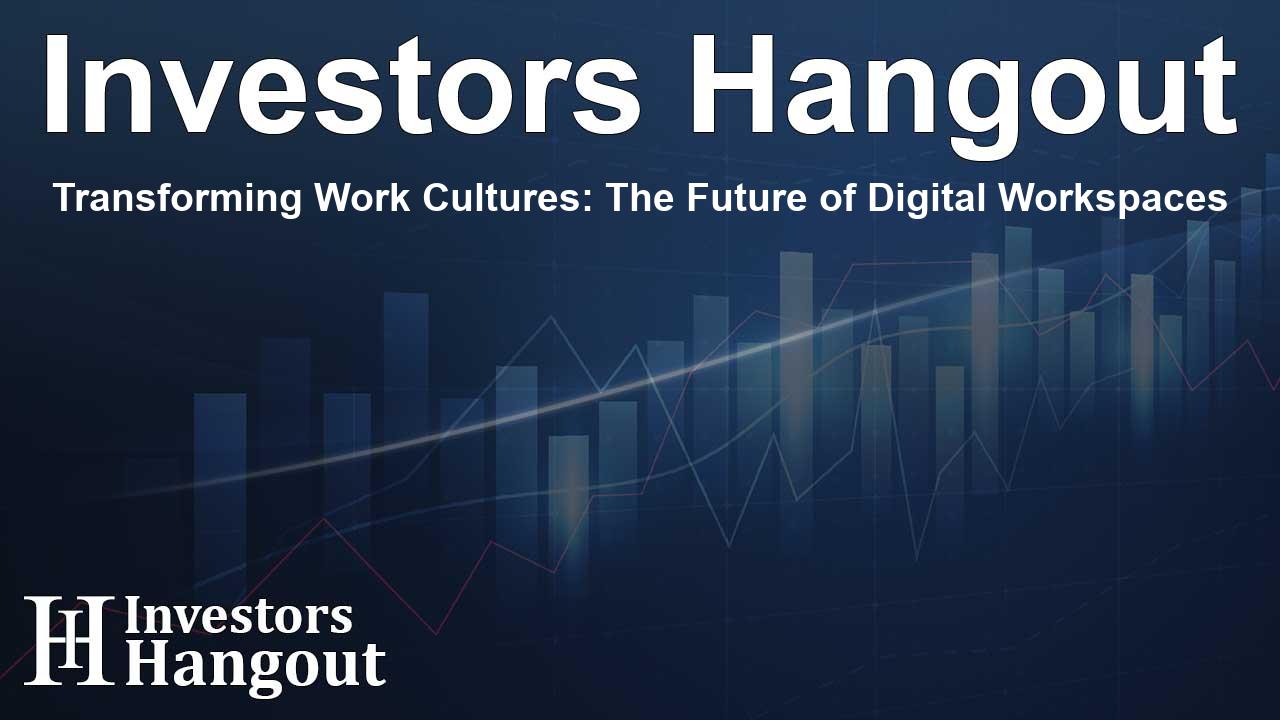Transforming Work Cultures: The Future of Digital Workspaces

The Future of Digital Workspaces in 2025
As we look ahead to a future where the digital workspace becomes the norm, insights from industry experts highlight how organizations will transform their operations. Leostream Corporation, known for its innovative Remote Desktop Access Platform, has been a leader in shaping these trends. Their CEO, Karen Gondoly, draws from two decades of experience in IT to make predictions that promise to reshape our understanding of work.
Understanding Digital Employee Experience (DEX)
One of the most significant concepts to emerge is Digital Employee Experience, or DEX. Organizations are beginning to understand the critical connection between how satisfied employees are and the productivity they deliver. DEX emphasizes user-friendly interfaces and personalized workflows. These advancements aim to foster deeper employee engagement through tools that cater to individual needs.
The Importance of Monitoring DEX
According to Gondoly, embracing technology that actively improves DEX is vital for businesses. Organizations that harness data analytics to personalize user experiences are likely to see increased employee loyalty and productivity, ultimately benefiting the company at large.
The Rise of Digital Workspaces
As we move closer to 2025, companies will increasingly turn to digital workspaces that provide secure and reliable access to resources for their remote teams. These work environments will become more diverse than ever, breaking free from the confines of traditional vendor-specific solutions.
Vendor Independence and Flexibility
IT departments are realizing the importance of crafting vendor-independent solutions. By doing so, they can ensure their infrastructures remain resilient against unforeseen technological changes, paving the way for the adoption of numerous emerging providers in the digital workspace sector.
The Shift Toward Fractional Workforces
The conventional 9-to-5 work schedule is becoming less prevalent as more professionals embrace freelance, part-time, and contract opportunities. This shift presents both challenges and opportunities for businesses, allowing them to tap into specialized expertise without the constraints of traditional employment models.
Strategies for Engaging Fractional Workers
For companies to attract and retain these fractional workers effectively, they must provide the right tools, policies around those tools, and methods to ensure adherence to those policies. This approach not only enhances productivity but enriches the overall work experience.
Embracing Cloud-Based Risk Management
With the rising threat of cyber attacks, IT professionals are turning to cloud solutions not just for data availability but also for enhanced security and effective risk management. Incorporating cloud-based strategies means better data protection and compliance measures.
Lessons from Recent Security Breaches
The incidents that have recently occurred highlight the necessity for robust cloud solutions. For example, disruptions to key industries underline the strategic value of cloud-based systems in maintaining operational continuity during crises.
Building Resilience Against External Challenges
Modern technologies serve as a buffer against external disruptions that could potentially derail market stability. As challenges like climate change, civil unrest, and supply chain issues persist, companies prioritizing resilient IT architectures will hold a competitive edge.
Advantages of Flexible IT Environments
Organizations investing in flexible and efficient IT solutions will better withstand the tumult of market fluctuations. The flexibility offered by such setups not only boosts operational efficiency but also strategically positions companies for future challenges.
About Leostream Corporation
Leostream’s Remote Desktop Access Platform stands as a testimony to their commitment to innovation. Developed over 20 years, this platform enables enterprises to maintain productivity through seamless remote access while employing stringent security measures based on zero-trust principles. Their solutions excel in environments requiring reliability and efficiency, accommodating industries from energy to government.
Frequently Asked Questions
What is Digital Employee Experience (DEX)?
DEX refers to the overall experience and satisfaction of employees while using digital tools and technologies in their workplace. It encompasses user-friendly designs and personalized workflows.
How will digital workspaces evolve by 2025?
By 2025, digital workspaces are expected to be more flexible and independent, allowing workers reliable access to resources from various vendors, enhancing overall productivity.
What are fractional workers and why are they important?
Fractional workers include freelancers and part-time professionals who bring specialized skills. They present opportunities for businesses to adapt and thrive without traditional employment structures.
What role does cloud technology play in risk management?
Cloud technology is increasingly being adopted for risk management because it offers improved security, compliance, and the ability to maintain business continuity during disruptions.
Why are flexible IT environments essential for businesses?
Flexible IT environments allow organizations to adapt to external challenges, ensuring stability and efficiency despite market fluctuations or crises.
About The Author
Contact Thomas Cooper privately here. Or send an email with ATTN: Thomas Cooper as the subject to contact@investorshangout.com.
About Investors Hangout
Investors Hangout is a leading online stock forum for financial discussion and learning, offering a wide range of free tools and resources. It draws in traders of all levels, who exchange market knowledge, investigate trading tactics, and keep an eye on industry developments in real time. Featuring financial articles, stock message boards, quotes, charts, company profiles, and live news updates. Through cooperative learning and a wealth of informational resources, it helps users from novices creating their first portfolios to experts honing their techniques. Join Investors Hangout today: https://investorshangout.com/
The content of this article is based on factual, publicly available information and does not represent legal, financial, or investment advice. Investors Hangout does not offer financial advice, and the author is not a licensed financial advisor. Consult a qualified advisor before making any financial or investment decisions based on this article. This article should not be considered advice to purchase, sell, or hold any securities or other investments. If any of the material provided here is inaccurate, please contact us for corrections.
